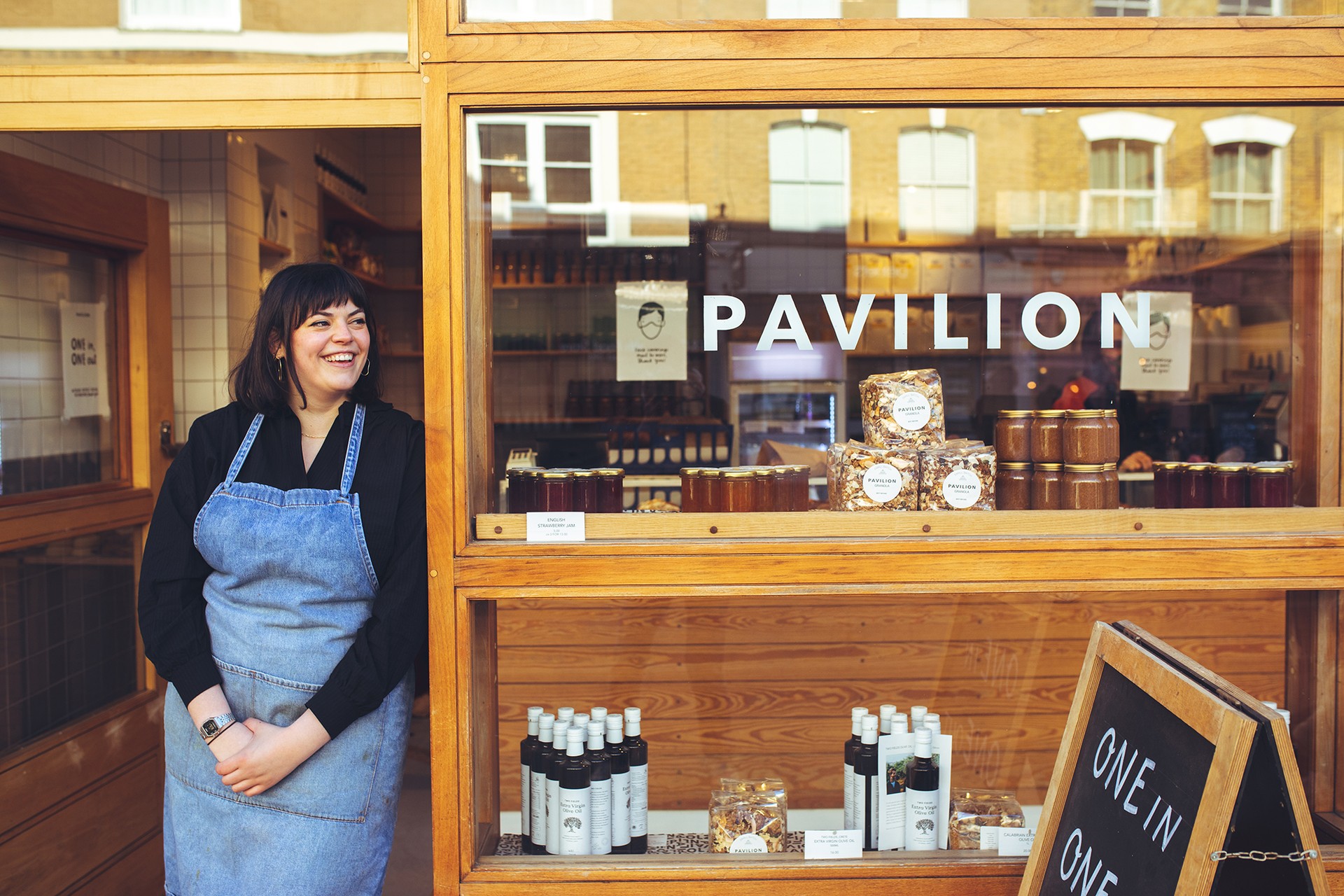Open for business!
Zettle and Courier present tales of reopening from the people behind some of London’s best-loved neighbourhood retailers.
Let’s go get ’em
From the Upper Street business owner taking contactless payments through the glass of his shop-front window, to the Victoria Park cafe slinging iced coffees from a mobile milkfloat, London’s bricks-and-mortar retailers have had to adapt to keep their operations running over the past year. While the sector was arguably one of the worst hit during the pandemic, many businesses rose to the challenge, pivoting with new services, experimenting with platforms and smartly incorporating technology.
Now, despite the many curve balls thrown their way, these businesses are emerging from lockdown with resilience, new opportunities and fresh skills that they never imagined. They’re also eager to welcome back customers, confident that the hard work they’ve put in over the past year will pay dividends. After all, the more streamlined you are, the more time you can spend serving your customers and focusing on what’s really important.
Zettle has teamed up with Courier to tell the stories of such business owners across the London boroughs of Wandsworth, Hackney and Islington, learning how they’ve transitioned during the past year, why many of the changes they made will be long term, and what the value of community means for the future of independent, local retail.
Find out how Zettle can make your business stronger at Zettle.com.
Wandsworth
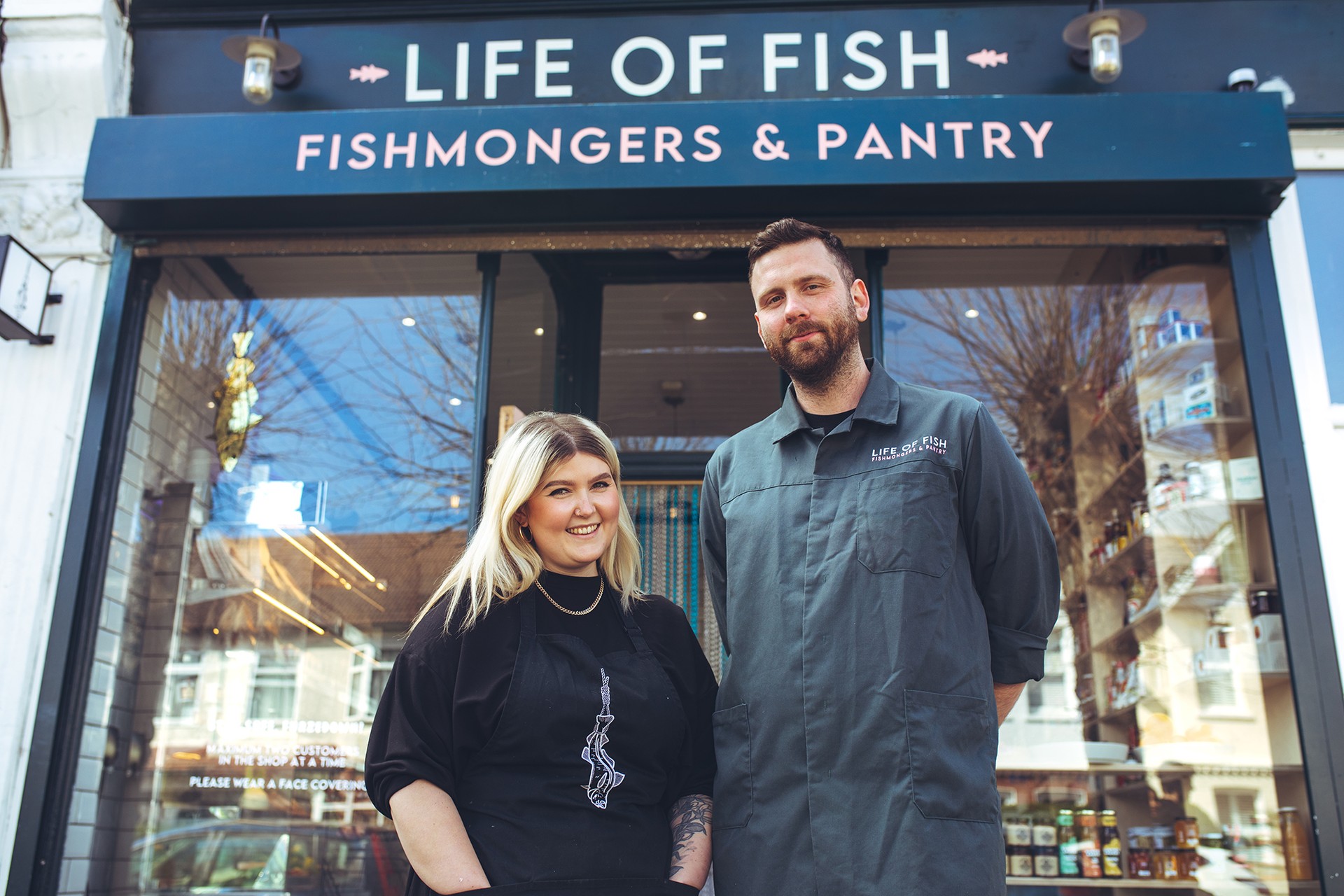
Wandsworth
—LIFE OF FISH and OVER UNDER
A bold opening
Life of Fish opened in August 2020. On a mission to supply seafoodcraving locals with their fresh fix, founders David Palmer and Ruth Howsam personally delivered orders to homes. But they soon became so busy that photos of handwritten invoices just didn’t cut it. ‘We needed a system that would allow us to invoice based on weights in the moment – and Zettle did all of that,’ says David. Zettle helped the pair automate things, reducing mistakes and time wasted – so they could focus on getting more fish to locals.
When customers can’t get to you...
Life of Fish used Zettle’s remote feature, which generates a payment link via the Zettle Go point of sale (POS) app that is then sent to the customer. This let David and Ruth drop the fish on the doormat and dash. ‘It’s really helpful to use Zettle as it combines all the weights of what we’ve sold,’ Ruth adds. ‘For example, we can see we’ve sold 20kg of salmon in two days, which helps us manage stock and reduce waste.
High-street heroes
Today, Life of Fish is part of a bustling community of food and drink businesses from all walks of life – from independent cafe Cut the Mustard next door, to the Daily Fresh Naan bakery, to Tooting Market just a stone’s throw away. ‘Our neighbourhood is full of passionate, foodie professionals who really want to go the extra mile when cooking, and really care about where their produce comes from,’ says Ruth.
The online shift
Coffee sellers, meanwhile, have been uniquely placed to weather the storm during the past year, as it’s one of the few sectors able to trade under lockdown restrictions. A few miles down the road from Life of Fish, Ed Barry, owner of Over Under Coffee, has managed to sell coffee online and deliver it to customers’ doors. ‘We’ve had amazing support from customers,’ Ed says. Deliveries now make up 50% of all sales, compared with 15% before. ‘It taught us we can innovate quickly, and we’re using a lot more technology now.’
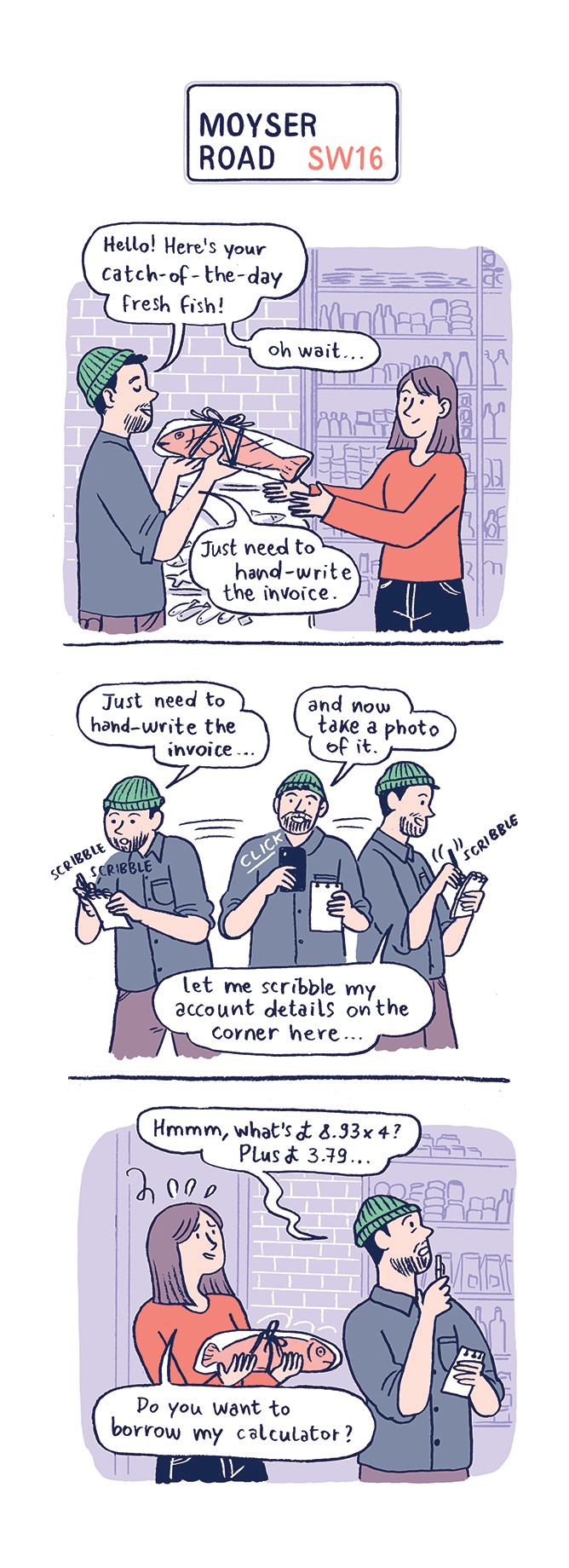
Zettle helps us manage stock and reduce waste.
Stoke Newington
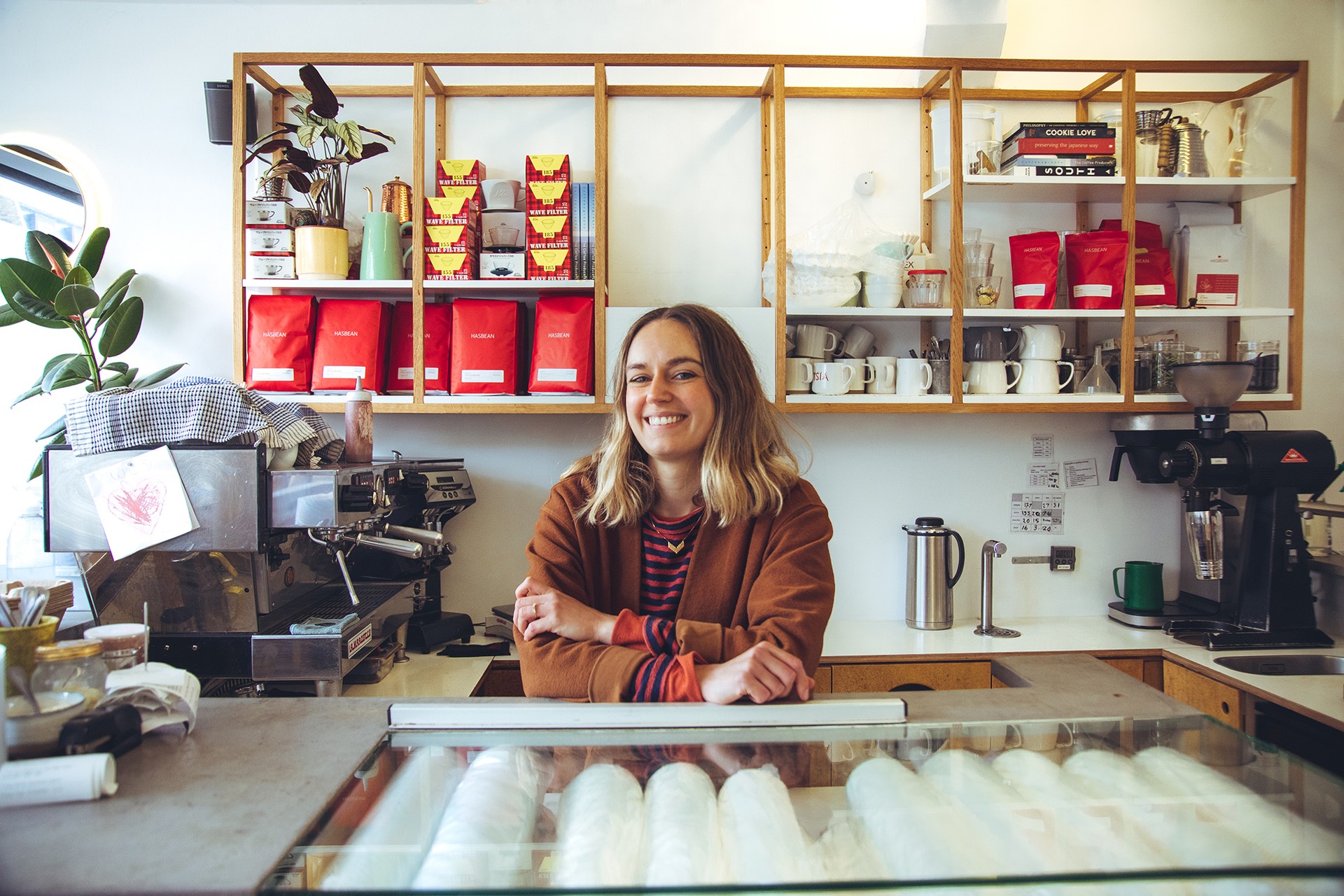
Stoke Newington
—ESTERS
Championing local
A counter stocked with cakes and cookies. A breakfast sandwich in a homemade potato bun. A Neal’s Yard cheddar toastie. All washed down with award-winning drinks from Hill Farm Juices. Nestled away from the busy high street, Esters, the Stoke Newington breakfast-to-lunch cafe, likes to experiment with flavours by using as many locally sourced ingredients as possible. It’s also always ready to shout about its suppliers, including the Growing Communities farmers’ market, seafood merchant Wright Brothers and butcher McKanna Meats, among many others. Even its hand sanitiser by GOOD – which is placed on each of the cafe’s tables – is made from natural ingredients down the road in Bethnal Green.
Speedy service
Co-owner Nia Burr says the cafe has a ‘strong contingent of fiercely loyal customers’ – no doubt due to such a great curation of local ingredients. But with that has come long queues – requiring a payment solution that could handle the pressure. Esters integrates the Zettle card reader with Revel, part of Zettle’s network of best-in-class POS providers. A contactless payment takes five seconds. ‘Our lockdown pivot has been really successful for us,’ says Nia, adding that the introduction of click-and-collect has helped to reduce queuing at the cafe. ‘We can be really busy, but customers can disperse quickly.’
Expansion plans
This has freed up time for the business to focus on other things. Esters’ lockdown pivot was to operate more as a bakery with an extensive takeaway menu, a move that has proved successful in the long term. But Nia is thinking about what’s next. ‘We’ve also expanded a little into deli and grocery, so we’re figuring out how to retain elements that have worked well, but also balance that with dine-in,’ says Nia. ‘We’ve learned a lot about how we might move forward into another site with a wider offering such as bakery-restaurant-takeaway.’
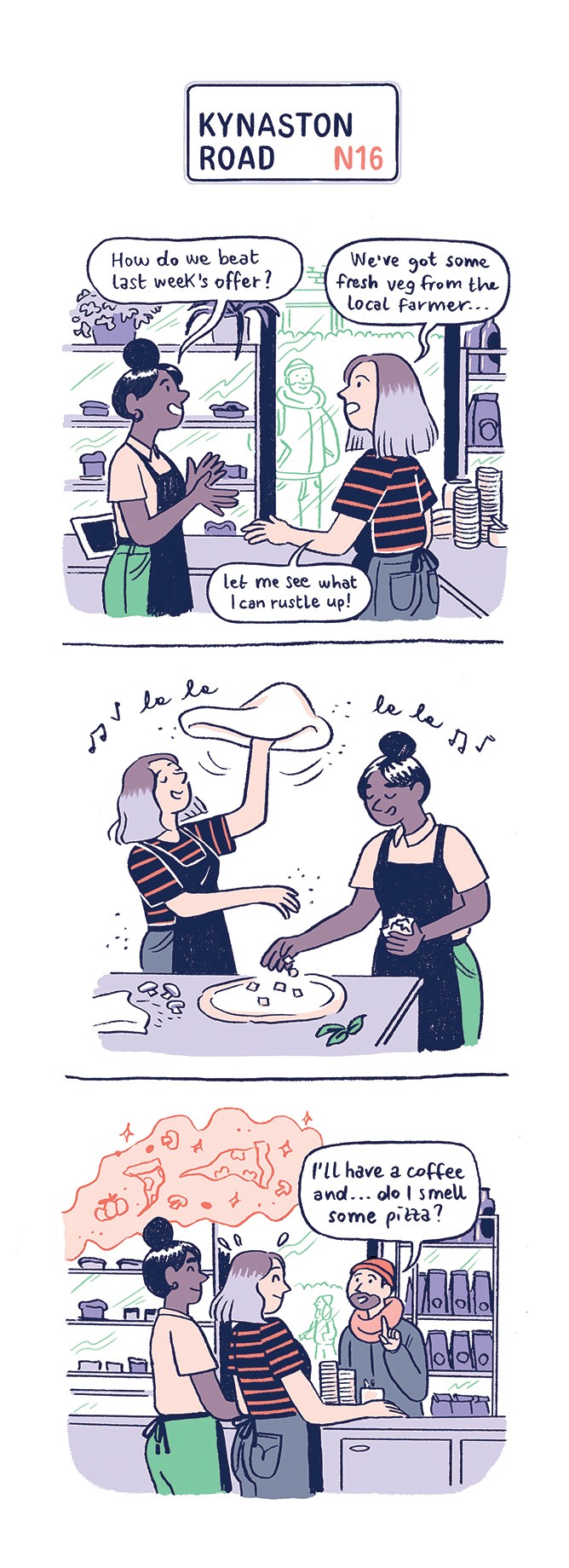
Our lockdown pivot has been really successful for us.
Victoria Park
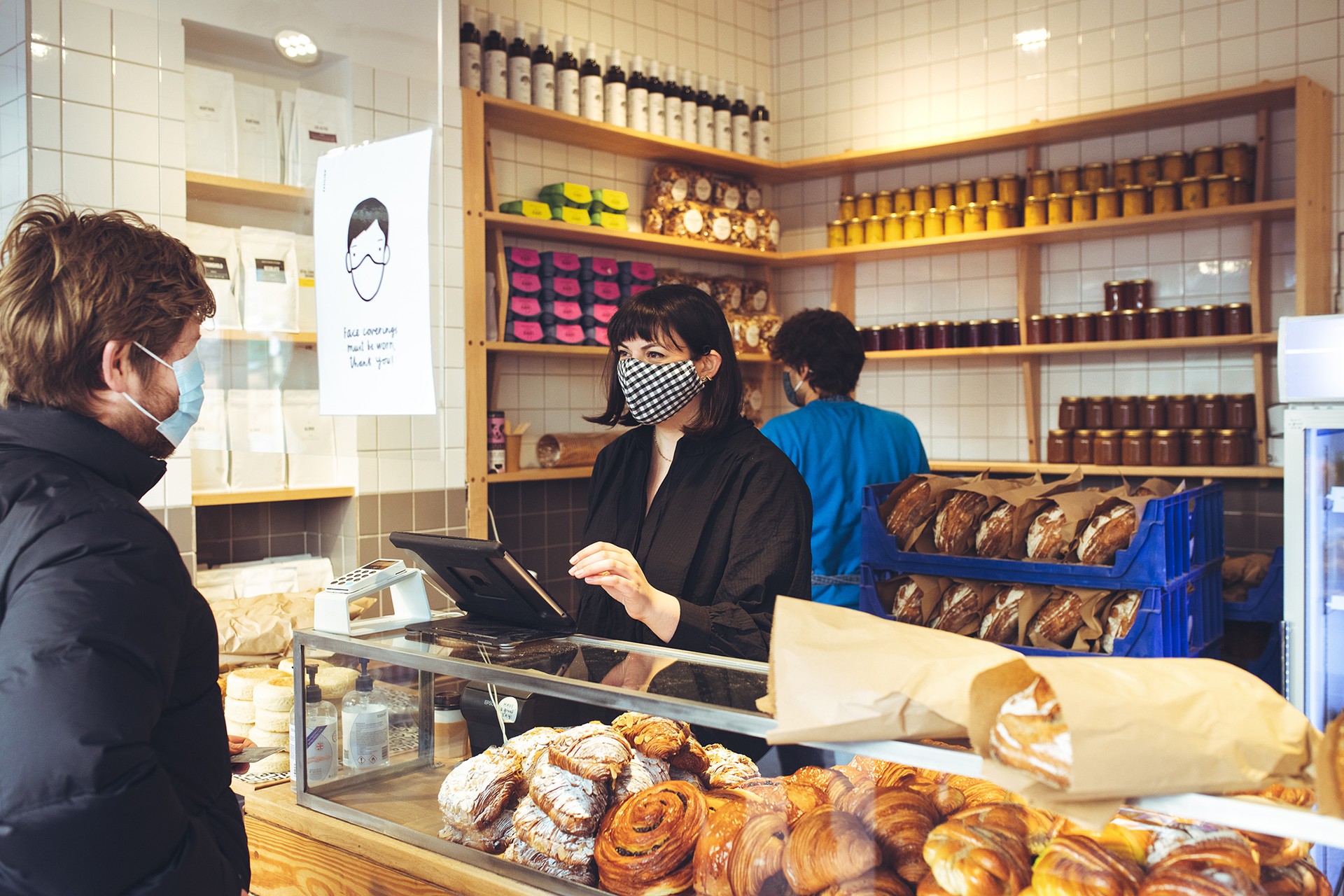
Victoria Park
—PAVILION
Park people
‘It’s fair to say we actually had a great year in 2020,’ says Betsy Dallas, general manager of cafe group Pavilion. Daily, all-day queues snaked around the cafe in Victoria Park as locals waited loyally for coffees, pastries, burgers and ice cream from neighbouring Hackney Gelato. ‘British people have always been excellent queuers,’ she says. Pavilion took the decision to close the cafe for renovation during the first lockdown, replacing it with a vintage milkfloat. ‘It was a wonderful summer... [Going mobile] taught us we are so much more than our shop fronts and buildings,’ says Betsy. ‘We have always had an incredibly high return customer rate, and it was heartwarming to see the same local faces day after day.’
Super efficient
The whole business has also moved to a cashless operation – like Esters, Pavilion uses Zettle with an integrated POS system. ‘The move to being cash-free has made everybody’s lives a lot easier,’ says Betsy. ‘We are a lot more efficient and it really does speed up service as well as reducing contact between parties,’ she explains. ‘It also makes end-of-day procedures a hell of a lot faster for our managers.’ Pavilion has also gone so far as to invest in a new ‘back bar’ staff position for its Victoria Park cafe to ‘float’ between the tills and make teas, cold drinks and bag up pastries – minimising the time that each customer spends at the physical sales points. ‘That way, the staff members on the tills can focus on service calmly and efficiently.’
Sunny days ahead
That efficiency has led to Betsy being excited about this coming summer – with Pavilion gearing up to launch Pav BBQ. ‘Summer has always been our best and busiest season, but with everyone having missed out on socialising, eating out and seeing friends for a whole year, we’re expecting the park to be fully packed every day, which makes us so happy,’ says Betsy.
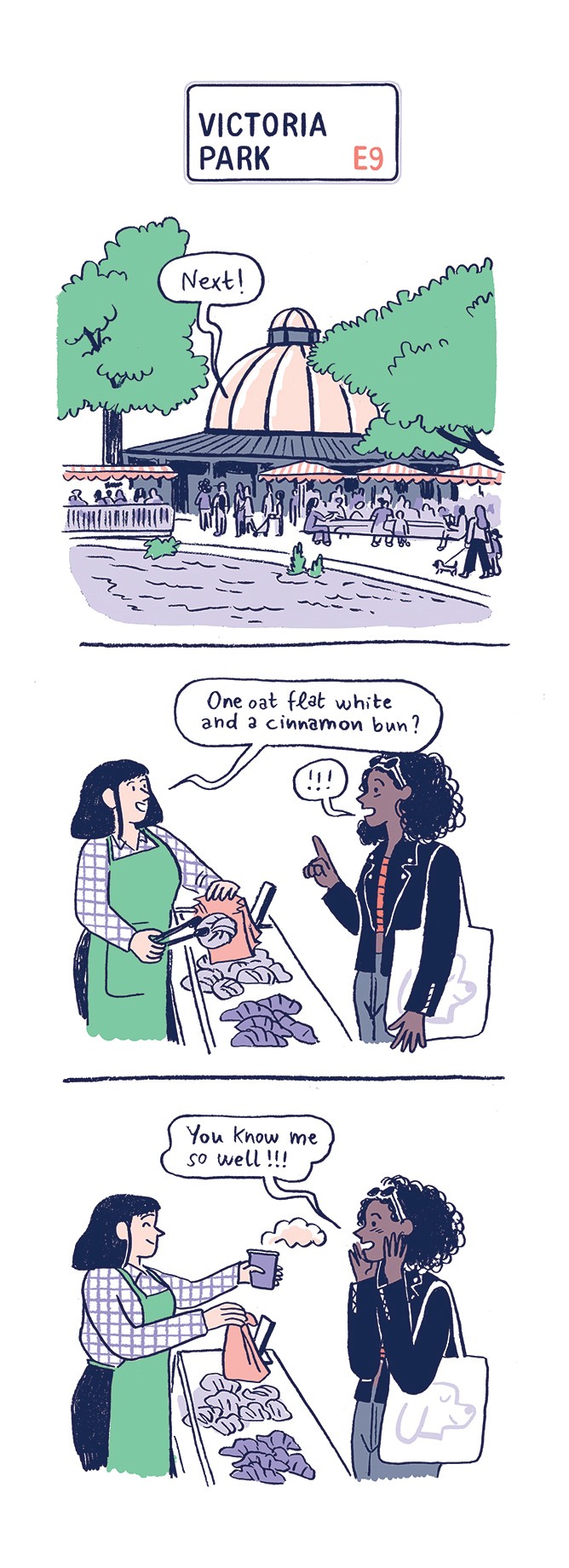
Being cash-free makes end-of-day procedures a hell of a lot faster for our managers
Islington

Islington
—KOBO CAFE
Clever solutions
Leo Stervander, founder and head roaster at Kobo Cafe, on Islington’s Upper Street, took the term ‘contactless’ to a whole new level during lockdown. By attaching the Zettle payment reader to the inside of the shop-front window, contactless payment could be made through the glass so that customers didn’t even need to enter the snug coffee shop. ‘We worked to create routines and a workflow that could enable us to provide a safe service in the long run – not just a panicked reaction to go back to “normal”,’ he says. ‘Also, by being more visible from the street, we’ve made many new friends as more residents in the area have found us over the past year.’
Building strong connections
The small, narrow coffee shop prides itself on offering a wide selection of dietary options, including Thai green vegan rolls and gluten-free blueberryand- coconut friands. Kobo also offers free home delivery of its extensive coffee range, supported by brilliant home-brewing how-to videos – which have been a generous way to connect with its customers during lockdown.
Surprise and delight
‘We’re very excited about seeing the hospitality industry opening up again, as most people are,’ Leo says. ‘To live in a big city without restaurants, bars, shows, art venues – it’s definitely lacking a bit of charm.’ Leo is now embracing reopenings with fresh menu ideas to excite loyal customers and new visitors, too. ‘As people have been brewing more delicious coffee at home, we have brought in two coffees from Brazil that might provide some positive surprises,’ he adds.
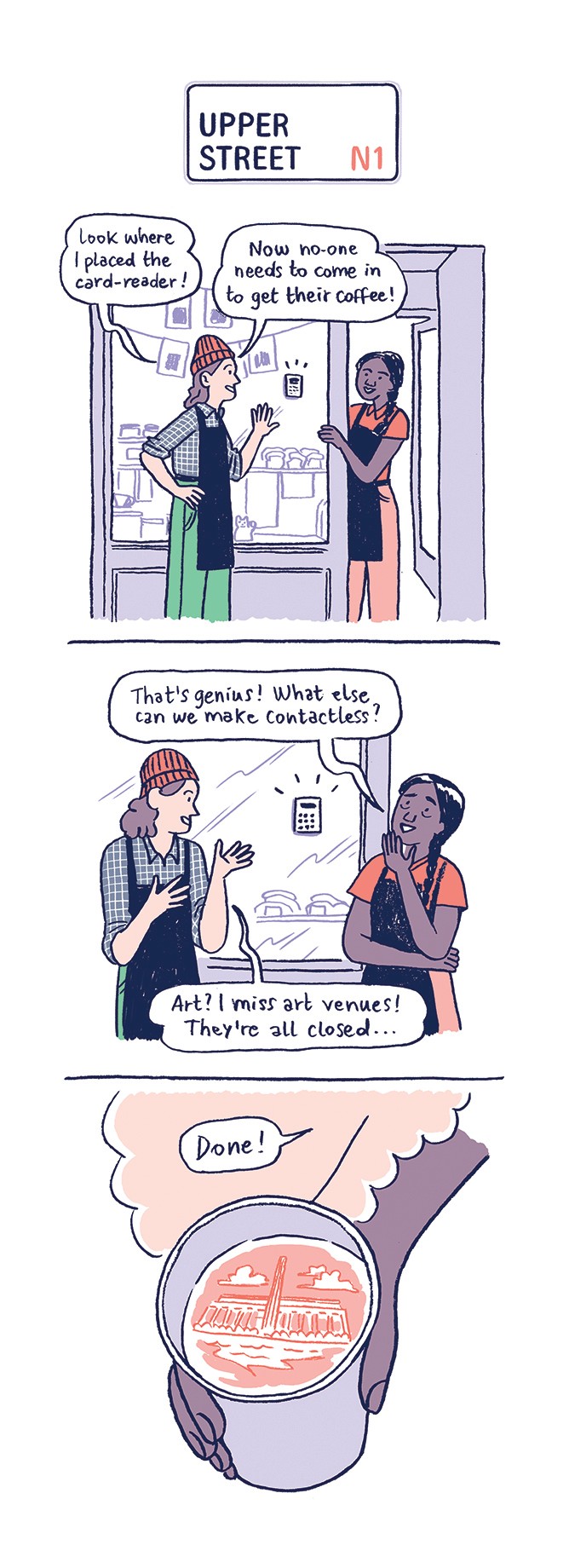
By being more visible from the street, we’ve made many new friends as more residents in the area have found us over the past year
Let’s do more together
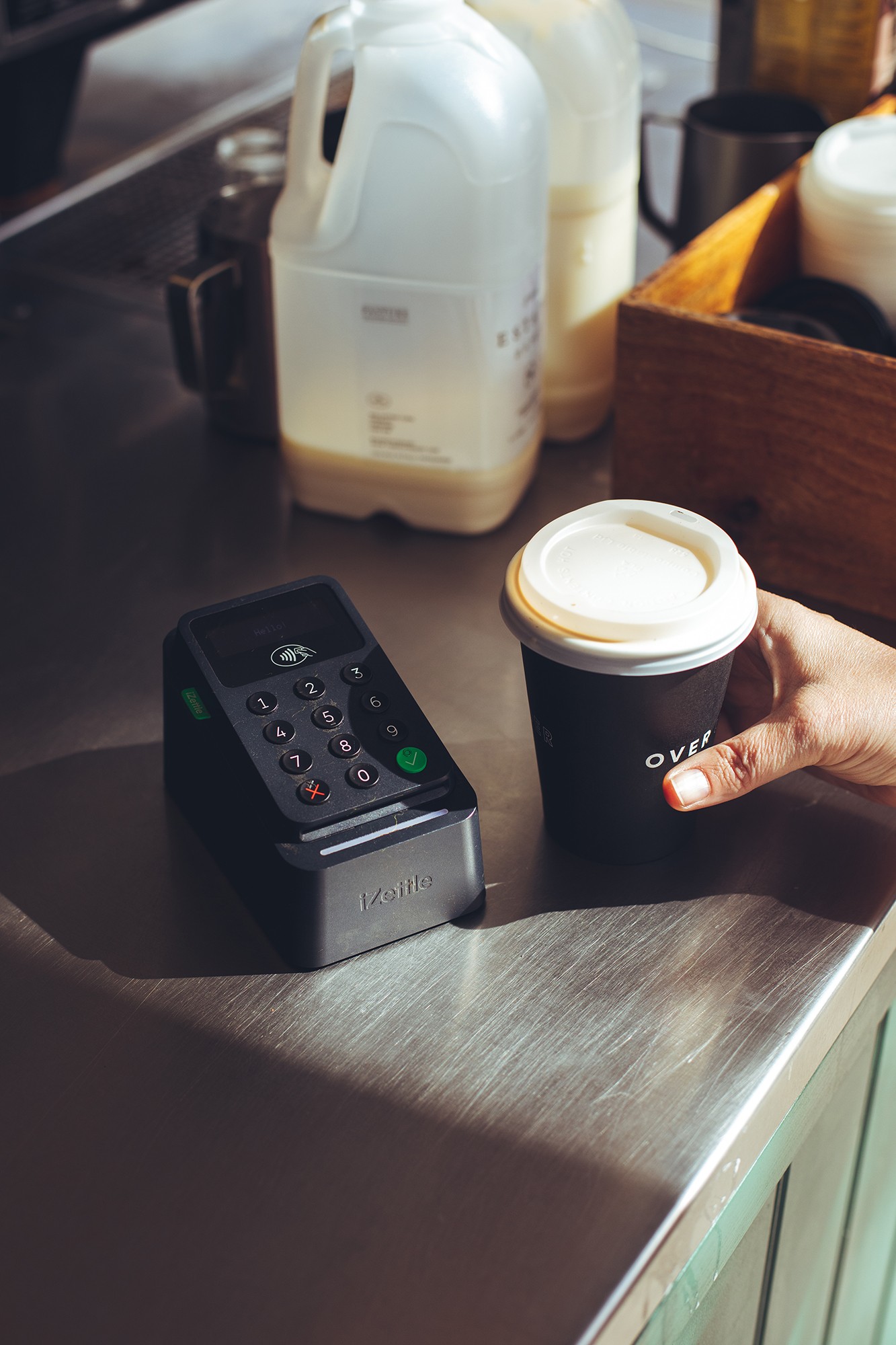
Zettle gives you a POS and payments set-up that’s completely tailored to your business, so you can cut down on admin, reduce mistakes and concentrate on your bottom line.
Faster, safer transactions
The Zettle Reader can handle a contactless payment every five seconds, which could mean higher turnover for your business. Or if your customers aren’t there with you, offer them safe ways to pay remotely with Zettle payment links and invoice.
Simple, scalable POS
The Zettle point-of-sale app lets you take payments, track sales and manage stock in one place, wherever you are. And because it’s so easy to use, there’s no training required – you can get started in minutes. The Zettle Reader also pairs with other leading POS systems, so you can create a tailored set-up to suit your business.
Integrated online sales
Connect your POS with online sales platforms including Shopify and BigCommerce to sync your inventories, make sure your stock levels are always up to date, and track both your online and in-store sales in real time.
Easy bookkeeping
Integrations with Xero and QuickBooks automatically import your sales data at the end of every day, so your books balance themselves.
Clear, transparent pricing
With Zettle, there are no lock-in contracts or hidden fees – if you don’t love it, you can leave us at any time. We can also discuss custom rates for businesses taking more than £10,000 in card payments a month
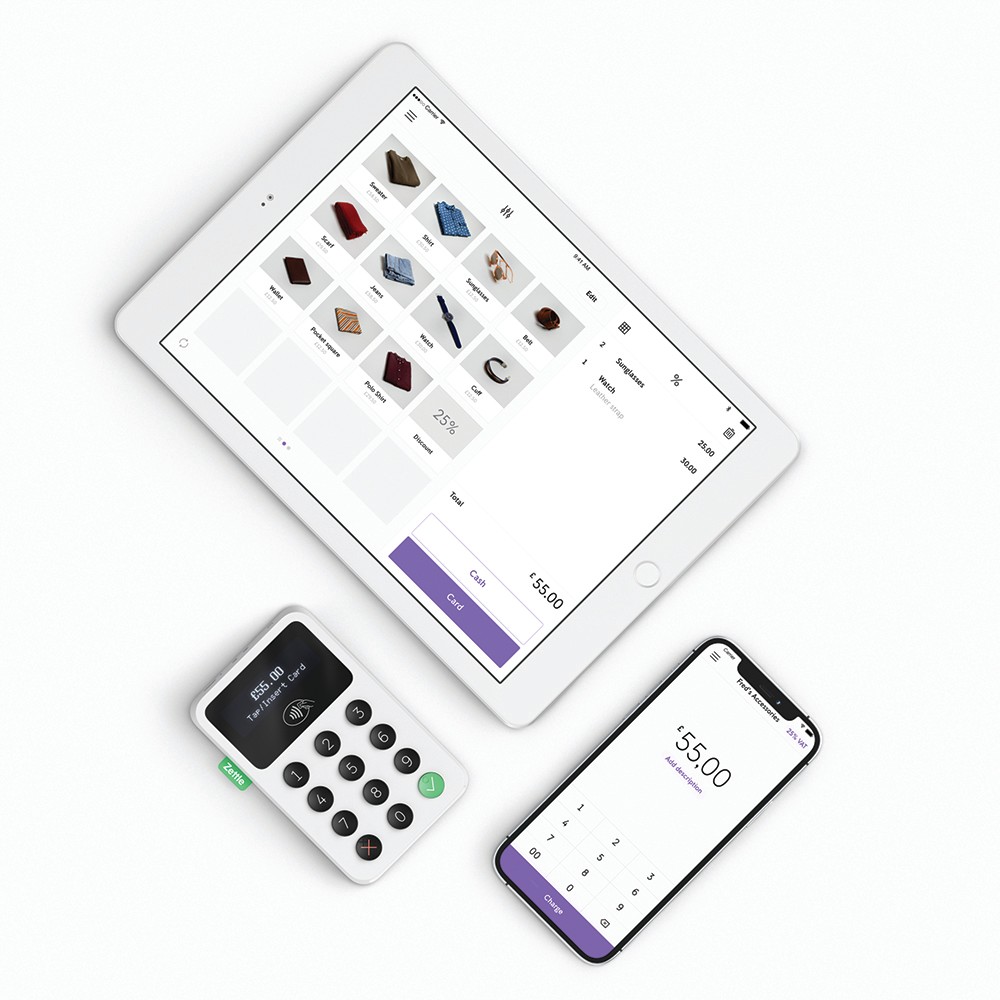
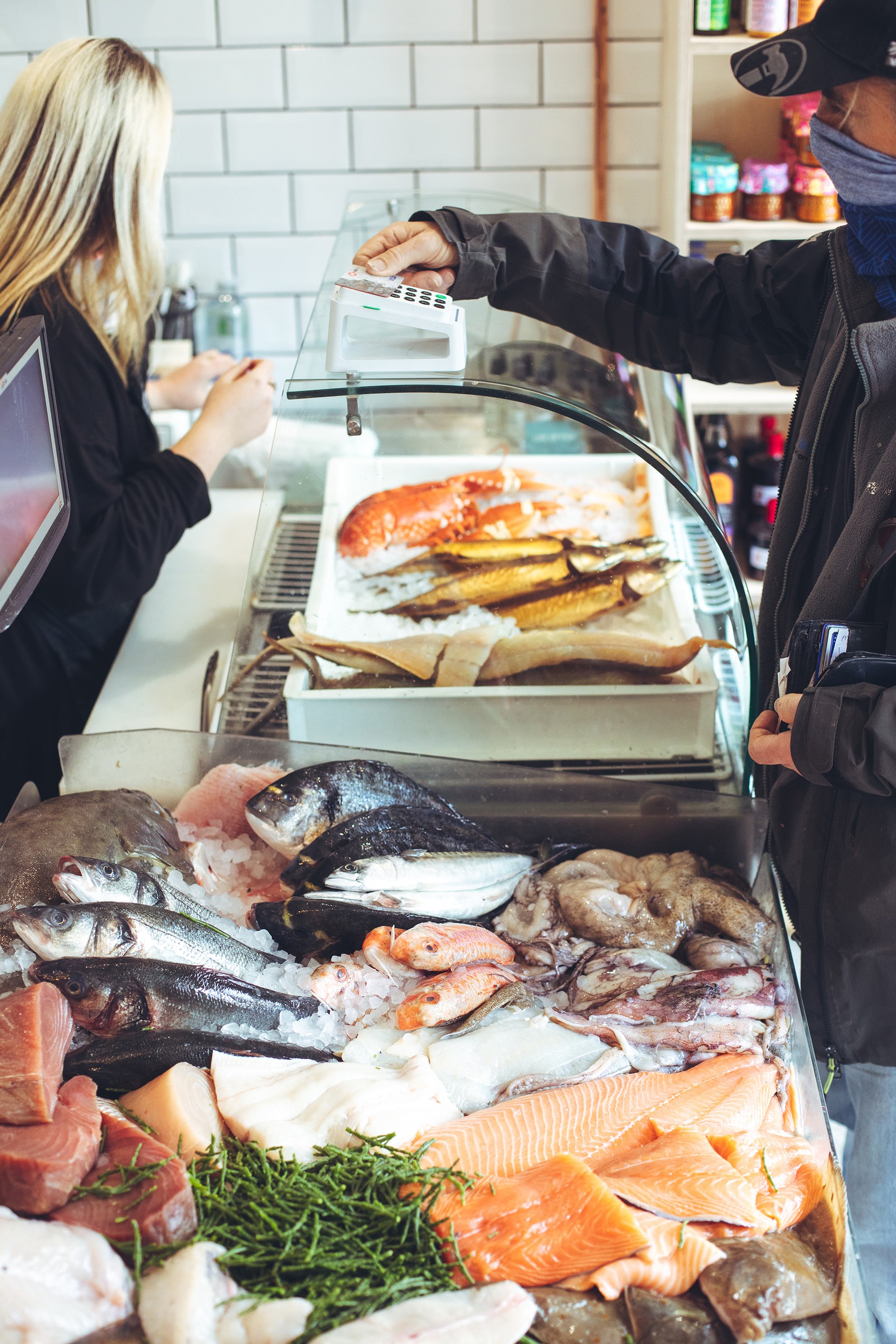
Find out how Zettle can make your business stronger at Zettle.com.
Ready for what’s next
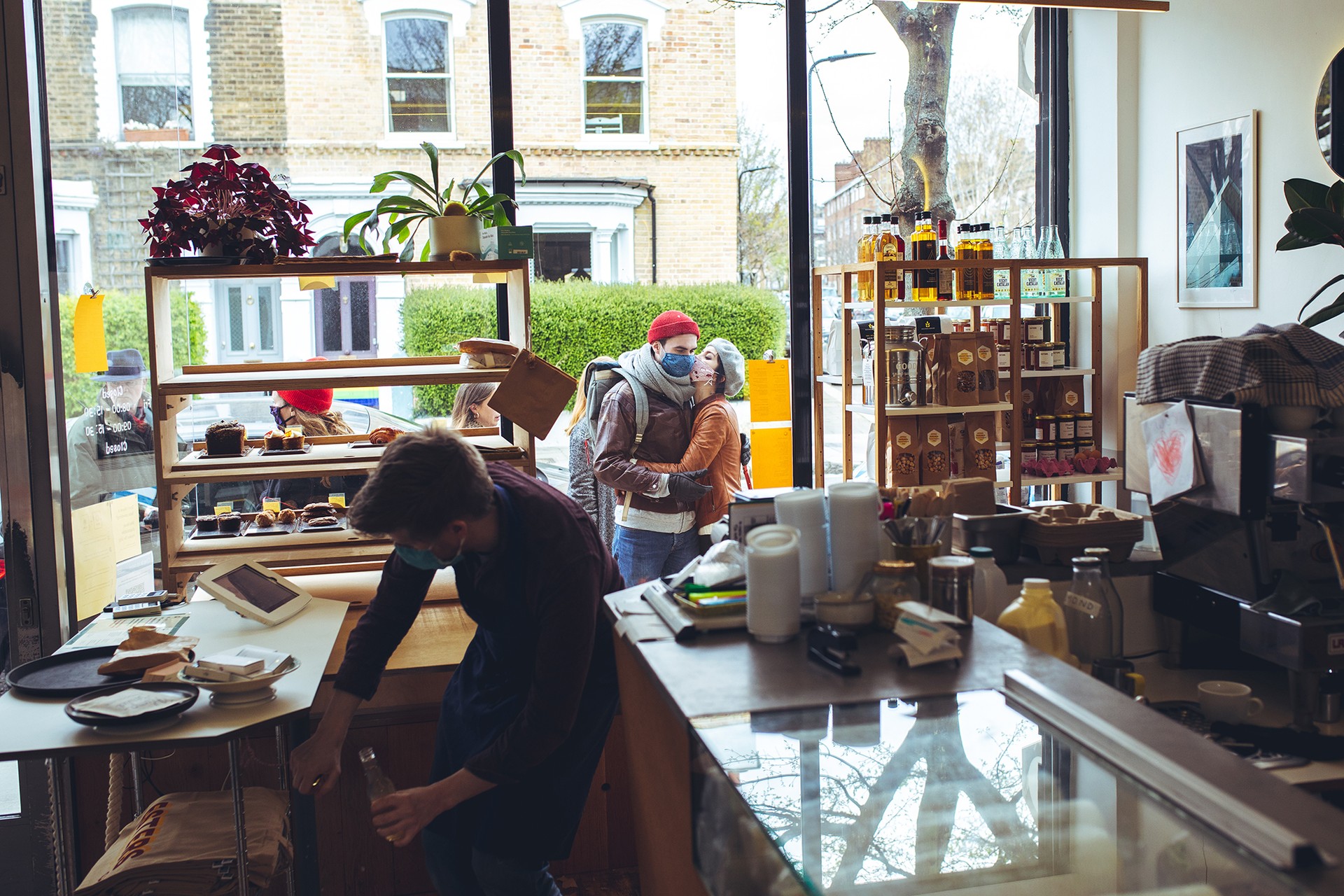
Ready for what’s next
For all of last year’s huge challenges, it’s also brought local businesses and their customers ever closer together. Neighbourhood stores have thrown customers a physical lifeline – more than just better-brewed coffee or delicious fresh fish, they’ve also become focal points of the community when it was needed the most. For business owners, their initiative, pivots and clever thinking have paid off far beyond financials – it’s made them more resilient and set them up to better adapt to future changes. And by incorporating smart technology at the heart of their operations, it’s made them more efficient, freeing up time to focus on what’s really important. As we re-emerge from a tough year, now is the perfect time for independent retailers to prove, yet again, just how valuable they really are to their local communities. So let’s get to it.
LOOKING INTO THE CRYSTAL BALL…
Ravneet Gill is a pastry chef, TV presenter and founder of the hospitality recruitment platform Countertalk. Here, she looks at the near-term future of the hospitality industry.
Q.
What does great customer service mean now?
A.
‘Beyond having customer safety front and centre until we’re truly out of the woods, customer service will be a longer-term concept. Operators will need to not just serve and create a stand-out product, they will need to understand their target consumer values and motivations, building brand loyalty in what will be a fiercely competed arena.’
Q.
What key trends will we see?
A.
‘Expect to see the at-home market evolve. Some operators will drop them at the first chance they can, given the logistical strain they can cause. Those who continue will hone their product into more of an experience, rather than just provisions for reheating. Expect to see the likes of Lee Tiernan (Black Axe Mangal), Brad Carter (Carters of Moseley) and John Chantarasak (AngloThai) leading the charge. Given the volume of talented front- and back-of-house [staff] that have been displaced in the past 18 months, expect to see excellent pop-ups, small and medium-scale openings, and dynamic street trading in full flow.’
Q.
What types of businesses will thrive as the sector opens up?
A.
‘[Those that] have staff wellbeing and retention as their key concern. Those that look to bring entry-level talent into their fold could stand to gain relatively quickly. Your product in the long term can only be as good as the talent that you employ and, hopefully, nurture.’
